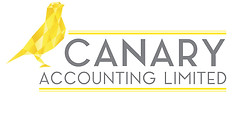Should I stay a Soletrader or become a Limited Company?
- Ruth Chettle

- May 17, 2020
- 3 min read
This is a really common question I get asked frequently and the overall answer is...it depends.
There are a number of factors to consider and there are pros and cons to each so I thought it would be useful to cover some of the main points.

WHAT IT MEANS TO BE A SOLETRADER:
As a soletrader, you and your business are one and the same. This is usually what most people start up using as it is very straightforward to set up and there is less admin involved.
The accounts process is simpler and the figures are not published on public record like Limited companies which gives you more privacy.
You are the business so if anything happens you are personally liable and that liability is unlimited.
You get taxed through your Self Assessment Tax Return on all of your profits regardless of how much cash you take out of the business.
Here are my 5 top tips for soletraders:
1. You need to register as self employed with HMRC and you have until the 5th October following the tax year in which you started self employment. You can register with HMRC here.
2. Use a separate bank account for all your business transactions which is completely separate to your personal bank account. If possible use the business name as the account name. You can transfer cash to your personal bank account by making sure its marked as drawings. It keeps things separate, easier track and gives some protection if HMRC look into your business affairs.
3. Try to put some of your earnings to one side throughout the year for your tax bill so there are no nasty surprises. As a rule of thumb I usually suggest putting aside 25% of profits for profits up to £50,000. 4. Don't forget for your first year you will be effected by the payments on account rules. If your tax bill is over £1,000 then HMRC require you to start making payments on account for the next tax years bill. So for your first year you may have a higher tax bill than expected.
I.e. if your tax bill for the year was £2,000 - you would be required to pay £2,000 + £1,000 (50%) = £3,000 by 31st January and then another £1,000 by 31st July.
5. Aim to get your tax return completed as soon as possible after the year end as this will allow you to know what tax is owed to HMRC and will save a lot of rushing around in January!
WHAT IT MEANS TO BE A LIMITED COMPANY:
By setting up a Limited company you will be creating a separate legal entity to yourself. As a result, your personal liability is limited should something go wrong.
It has been known that some businesses will not work with individuals that do not have their own Limited Company.
There is more admin to complete as you will need to submit an annual Confirmation Statement and Statutory Financial Statements to Companies House each year. These are kept on public record so anyone could look up this information.
The Limited Company pays Corporation Tax at 19% on all business profits which needs reporting to HMRC via a Corporation Tax Return each year.
You would be a Director and Shareholder of the Limited Company. As a Director/Shareholder you would pay yourself through a combination of salary and dividends. Any income taken out of the Limited Company would need reporting on your Self Assessment Tax Return.
WHICH OPTION WILL SAVE ME TAX?
Depending on profits it may be more tax efficient to operate through a Limited Company as there are tax planning opportunities available.
A summary of the tax differences for various profits can be found on our helpsheets page here.
OVERVIEW:
Here is a table summarising some of the key points discussed above:

If you would like to find out more or would like to have a chat about which option may be best for you please feel free to get in touch with me.




Comments